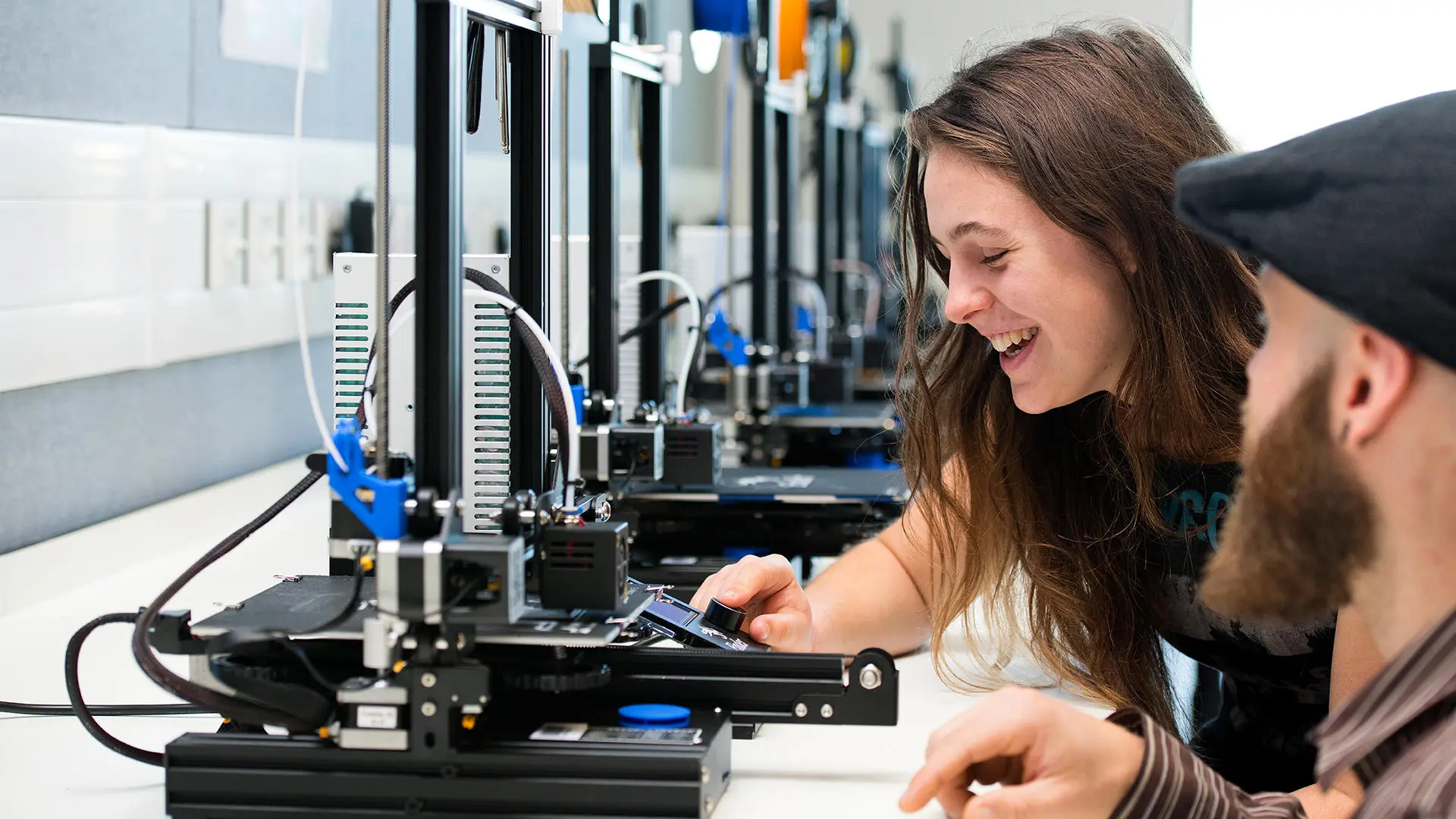Electrical, electronic and robotics engineers are involved in the design, development and testing of electrical, electronic and robotic systems. For electrical and electronic engineers this could include anything from driverless cars to medical scanners, while robotics engineers would create robots and robotic systems that are able to complete jobs that humans can’t. You’ll develop specialist skills according to your interests and ambitions, including areas such as power electronics, machine intelligence, microcontroller systems and renewable energy
Why study with us
- Benefit from state-of-the-art, well equipped laboratories and learning facilities within our new £35 million Engineering Innovation Centre.
- Our Electronic and Robotics degrees are accredited by the Institute of Engineering and Technology (IET).
- Our courses offer an optional 48-week sandwich placement in industry.
What can you do with a robotics degree?
With a wide range of career opportunities available you could work for robotics, digital technology, automotive, telecommunications, electronics consultancies and electronic equipment manufacturers.
Our close links with industry means that what you’ll learn reflects current best practices. We also work with many professional bodies and learned societies. You'll benefit from their teaching, support, research and commercial activities.
Future careers in Electrical and Robotics Engineering
- Electrical engineer
- Electronics engineer
- Aerospace engineer
- Control and instrumentation engineer
- Design engineer
- Nuclear engineer
- Sound engineer
- Special effects technician
- CAD technician
Take the next step

Study a degree at UCLan
Interested in studying a degree with us? From exploring accommodation to visiting us at an Open Day, find out everything you need to know about life at UCLan.

